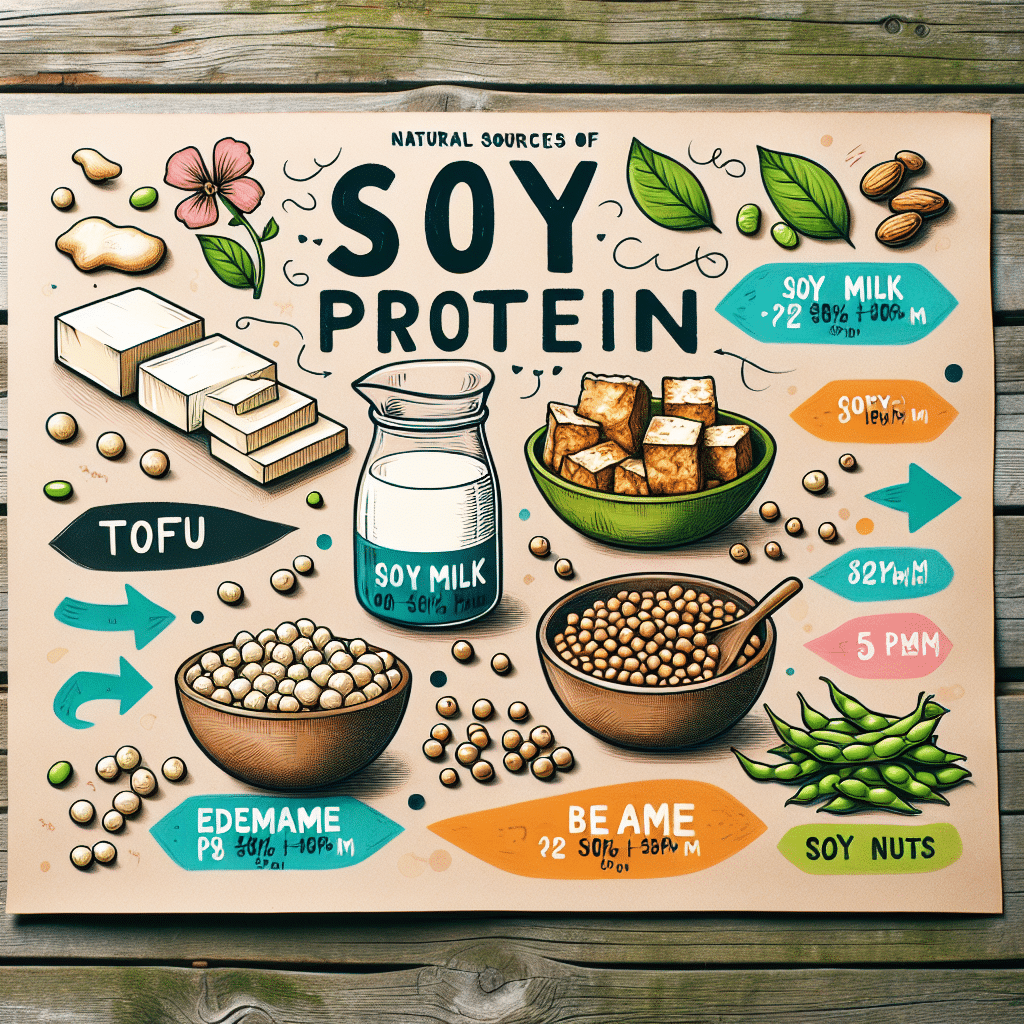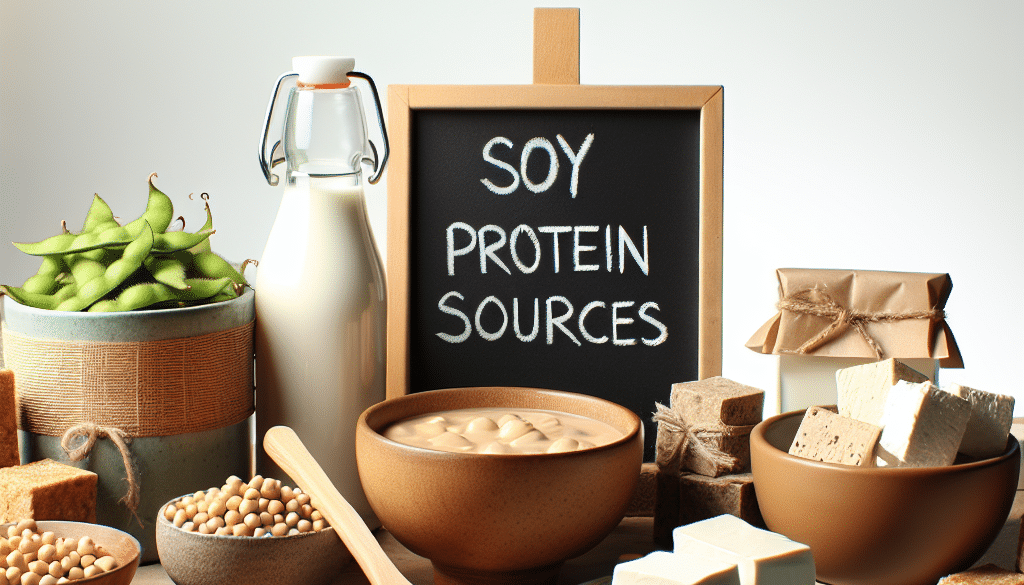What Is The Best Way To Get Soy Protein?
-
Table of Contents
- Maximizing Health Benefits: The Best Ways to Get Soy Protein
- Understanding Soy Protein
- Whole Soy Foods: A Nutrient-Rich Source
- Soy Protein Powders and Supplements
- Integrating Soy Protein into Your Diet
- Health Considerations and Recommendations
- Case Studies and Statistics
- Conclusion: Embracing Soy Protein for Optimal Health
- Discover ETprotein’s Premium Soy Protein Products
Maximizing Health Benefits: The Best Ways to Get Soy Protein

Soy protein is a complete protein source that has gained popularity due to its numerous health benefits and versatility in various diets. It is particularly important for vegetarians, vegans, and those looking to reduce their meat consumption. This article explores the best ways to incorporate soy protein into your diet, backed by research and expert opinions.
Understanding Soy Protein
Soy protein is derived from soybeans, a legume rich in high-quality protein and essential amino acids necessary for human health. It is a plant-based protein that can serve as an alternative to animal proteins, offering a range of health benefits, including lowering cholesterol levels, reducing the risk of heart disease, and potentially playing a role in cancer prevention.
Whole Soy Foods: A Nutrient-Rich Source
One of the best ways to get soy protein is through whole soy foods. These include:
- Tofu: Made from coagulated soy milk, tofu is versatile and can be used in a variety of dishes, from stir-fries to smoothies.
- Edamame: These are young soybeans, often steamed or boiled and served with salt. They are a great snack or addition to meals.
- Tempeh: A fermented soy product that has a firm texture and nutty flavor, making it suitable for grilling and sautéing.
- Soy Milk: A common dairy milk alternative, soy milk is rich in protein and often fortified with vitamins and minerals.
- Soy Nuts: Roasted soybeans that serve as a crunchy, protein-packed snack.
Whole soy foods not only provide protein but also contain fiber, vitamins, and minerals, making them a nutritious part of any diet.
Soy Protein Powders and Supplements
For those looking to boost their protein intake, soy protein powders and supplements are convenient options. They can be easily added to shakes, smoothies, and baked goods. When choosing a soy protein powder, it’s important to consider the following:
- Opt for non-GMO and organic products to avoid potential health risks associated with genetically modified organisms.
- Check for added sugars, artificial flavors, and preservatives, which can negate some of the health benefits.
- Look for products with a complete amino acid profile to ensure you’re getting all the essential nutrients.
It’s also worth noting that soy protein isolates, which are highly processed forms of soy protein, may not offer the same health benefits as whole soy foods.
Integrating Soy Protein into Your Diet
Incorporating soy protein into your diet can be simple and delicious. Here are some ideas:
- Add tofu to your salads, stir-fries, or scramble it as a substitute for eggs.
- Snack on edamame or soy nuts between meals for a protein boost.
- Use soy milk in your cereal, coffee, or smoothies.
- Include tempeh in your sandwiches or as a meat substitute in recipes.
- Mix soy protein powder into your post-workout shakes or use it in baking.
By varying your soy intake, you can enjoy a range of flavors and textures while reaping the nutritional benefits.
Health Considerations and Recommendations
While soy protein is generally considered safe for most people, there are some considerations to keep in mind:
- Individuals with soy allergies should avoid soy protein.
- Some studies suggest that excessive consumption of soy products may have negative effects on thyroid function, though more research is needed.
- Women with a history of estrogen-sensitive cancers should consult with their healthcare provider before increasing soy intake.
It’s recommended to consume soy protein in moderation and as part of a balanced diet. The American Heart Association suggests that 25 grams of soy protein per day can be beneficial for heart health when it replaces foods high in saturated fats.
Case Studies and Statistics
Research has shown the positive impact of soy protein on health. For example, a study published in the Journal of the American College of Nutrition found that soy protein consumption was associated with significant decreases in serum cholesterol levels. Another study in the Journal of Perinatal Education reported that soy protein might help reduce the risk of breast cancer.
Statistics indicate that the global soy protein market is growing, reflecting an increased awareness of its health benefits. According to a report by Grand View Research, the global soy protein market size was valued at USD 8.91 billion in 2019 and is expected to grow at a compound annual growth rate (CAGR) of 7.4% from 2020 to 2027.
Conclusion: Embracing Soy Protein for Optimal Health
In conclusion, the best way to get soy protein is through a combination of whole soy foods and high-quality soy protein powders or supplements. By incorporating soy into your diet, you can enjoy its health benefits while contributing to a more sustainable food system. Remember to choose non-GMO, organic products and consume soy in moderation as part of a diverse and balanced diet.
Discover ETprotein’s Premium Soy Protein Products
If you’re looking to incorporate high-quality soy protein into your diet, ETprotein offers a range of organic bulk vegan proteins that cater to various needs. Their products are characterized by a neutral taste, non-GMO, allergen-free attributes, and high purity levels, making them an excellent choice for those seeking the best soy protein options.
About ETprotein:
ETprotein, a reputable protein and L-(+)-Ergothioneine (EGT) Chinese factory manufacturer and supplier, is renowned for producing, stocking, exporting, and delivering the highest quality organic bulk vegan proteins and L-(+)-Ergothioneine. They include Organic rice protein, clear rice protein, pea protein, clear pea protein, watermelon seed protein, pumpkin seed protein, sunflower seed protein, mung bean protein, peanut protein, and L-(+)-Ergothioneine EGT Pharmaceutical grade, L-(+)-Ergothioneine EGT food grade, L-(+)-Ergothioneine EGT cosmetic grade, L-(+)-Ergothioneine EGT reference grade and L-(+)-Ergothioneine EGT standard. Their offerings, characterized by a neutral taste, non-GMO, allergen-free attributes, with L-(+)-Ergothioneine purity over 98%, 99%, cater to a diverse range of industries. They serve nutraceutical, pharmaceutical, cosmeceutical, veterinary, as well as food and beverage finished product distributors, traders, and manufacturers across Europe, USA, Canada, Australia, Thailand, Japan, Korea, Brazil, and Chile, among others.
ETprotein specialization includes exporting and delivering tailor-made protein powder and finished nutritional supplements. Their extensive product range covers sectors like Food and Beverage, Sports Nutrition, Weight Management, Dietary Supplements, Health and Wellness Products, and Infant Formula, ensuring comprehensive solutions to meet all your protein needs.
As a trusted company by leading global food and beverage brands and Fortune 500 companies, ETprotein reinforces China’s reputation in the global arena. For more information or to sample their products, please contact them and email sales(at)ETprotein.com today.












